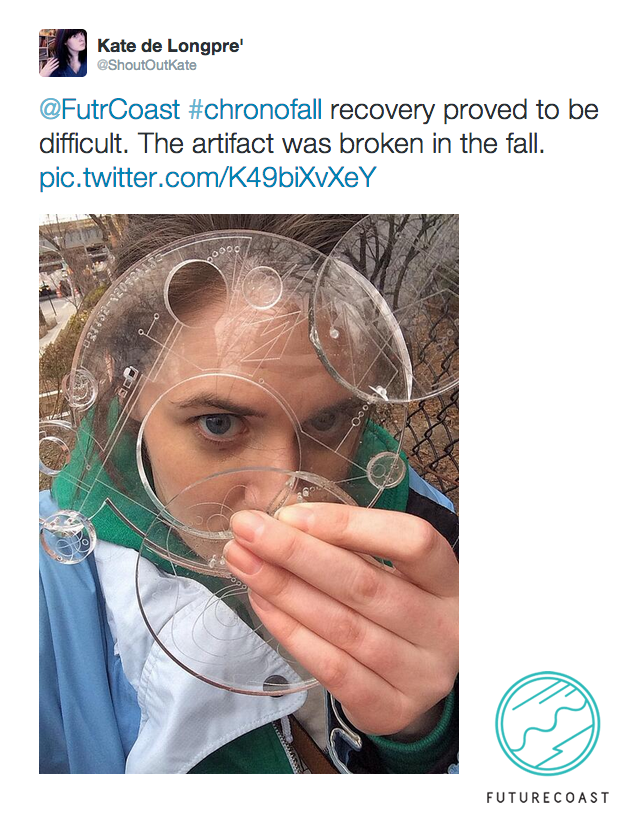The software system of the future has sprung a space-time leak. But since it’s only in their voicemail storage, it takes them decades to get around to fixing it. Meanwhile, we get to listen to the messages that people leave for each other in the years 2020 to 2065 – by turns banal, mysterious, and terrifying. Welcome to FutureCoast, a playful yet serious collaborative storytelling project about climate changed futures…
A climate change education project of the PoLAR Partnership at Columbia Climate Center, FutureCoast focuses on ways that participation in climate change narratives can foster deeper engagement and understanding. PoLAR’s Principal Investigator Stephanie Pfirman: “Scientists increasingly use scenarios and storylines to explore the implications of both environmental changes and societal choices” and to break down disciplinary boundaries and link large-scale events to personal consequences.
INFORMAL LEARNING
Museums have embraced this participatory model. The American Museum of Natural History, the Smithsonian American Art Museum, the Exploratorium, and Science Museum London have adapted FutureCoast’s playful narrative for their climate outreach. We’re also planning and have held FutureCoast workshops with ArtsBrighton, the Environmental Humanities Research Group at University of Oregon, The Gray Center for Play and Inquiry at U Chicago, and others.
LISTENING TO OUR FUTURES
“We’re finding voicemails from the future – come listen” is how FutureCoast opens a dialog. At FutureCoast.org, people find a growing library of voicemails that seem to have leaked from the cloud of possible futures. In a minute or less, each voicemail tells a story about a possible future and “how life is” for the people in it.
If voicemails sound authentic – like they were made by real people – it’s because they are. To contribute a voicemail to FutureCoast, people call our Hotline, +1-321-7FC-OAST, and record it. They express their future thoughts and visions and add to the project’s overarching narrative.
By creating a space for these stories, we create an engine for engaging people with “futurethinking” ideas and connecting climate science to human systems and values. We provide science resources as platforms on which they build their stories.
CHRONOFACTS AND CHRONOFALLS
And then there are chronofacts! To embody its authentic fiction, FutureCoast stages chronofalls: we geocache elegant objects, players seek them out and get them decoded into new voicemails from the future. We currently have over 40 chronofacts in play nationally and internationally. Chronofacts both strengthen FutureCoast’s immersive fiction and draw people to physically experience locations with significance to climate science
(Geocaching a chronofact is an easy way to get started with FutureCoast; to volunteer, use this form.)
TAKING ACTION
FutureCoast is very new and parts of it are strange, and I imagine that for Climate Access members, the urge to watch from a safe distance must be nearly overwhelming. That may be squandering an opportunity. FutureCoast exists because of a growing awareness that science alone is not sufficient to engage the public; to get action, you must take action!
The actions here are simple and straightforward:
1) Go to FutureCoast.org and listen to some voicemails.
2) Tell the world what you know about possible futures – share your science in an authentic-sounding voicemail of the future. +1-321-7FC-OAST
Do hurry, FutureCoast ends April 30.
FURTHER READING: FutureCoast in WIREDCenter for the Future of MuseumsSituation LabState of the Planet.
Ken Eklund is the creator of FutureCoast. He’s the game and experience designer that created World Without Oil. Sara Thacher is FutureCoast’s producer; she was a principal of the landmark experience The Jejune Institute.
image via FutureCoast


